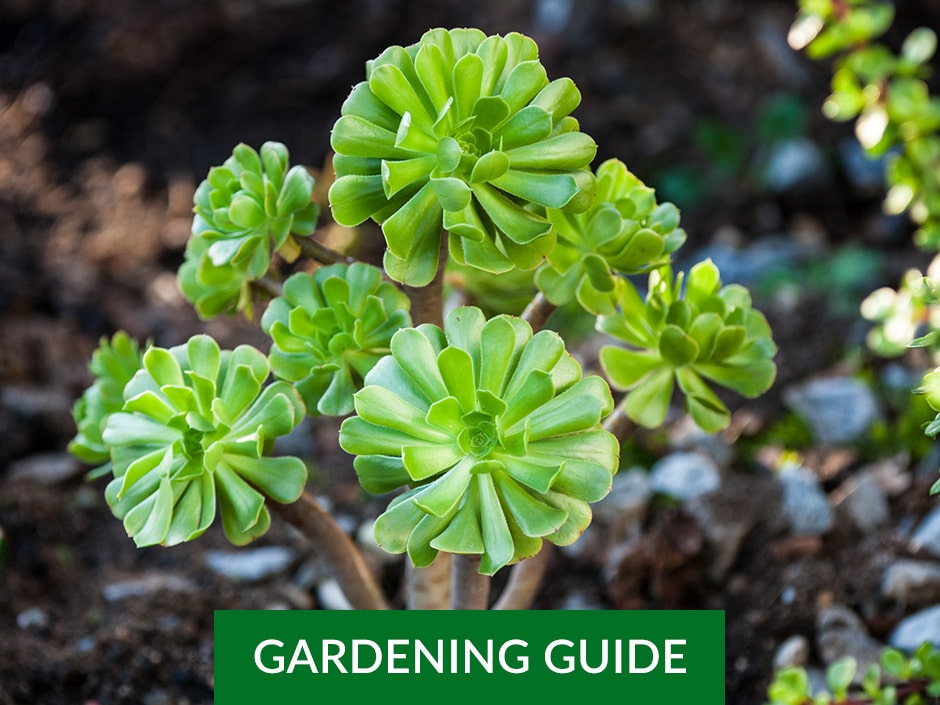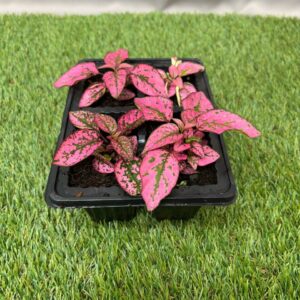February
Western Cape guides

FEBRUARY GARDENING IN THE WESTERN CAPE
February is one of the hottest and driest summer months in the garden. Follow this guide for water-saving (and budget-saving) gardening tips, a February planting guide magand an introduction to mulching – your secret weapon in the garden.
Spotlight on: Succulents
Although these plants have a very special set of needs, they’re easy to maintain once you master the basics. Best of all, they’re affordable and come in many different interesting variations. Follow these simple care guidelines to help yours flourish:
- Although succulents require a thorough watering, this can be done in intervals (once a week in summer is sufficient)
- Succulents grow better when they’re not cooking in the midday sun. They thrive in morning sunlight and afternoon shade.
- There are some species that are easier to care for and more versatile than others. These include aloe, echeveria, jade plant (Crassula ovata), pig’s ears (Cotyledon orbiculata), and sedum (or stonecrop).
ON YOUR TO-DO LIST FOR FEBRUARY
Plant & Sow
- Plant woody-stemmed, waterwise herbs such as oreganum, rosemary, sage and thyme.
- Sow beetroot, cabbage, cauliflower, carrots, lettuce, onions, spinach and turnips.
- Sow winter-flowering annuals such as bokbaaivygies, chrysanthemums, Iceland poppies, larkspurs, lupins, marigolds, nemesias, pansies, stocks and violas.
- Plant winter-flowering bulbs such as Cape cowslips (Lachenalia mathewsii), gladioli, and forest lilies (Veltheimia bracteata).
Feed
- Feed deciduous fruit trees like apple, apricot, cherry, nectarine, peach, pear, plum and quince once they’re finished fruiting with 2kg of 2:3:2 each, and renew mulch around their bases.
- Feed lilies with a tablespoon of 3:1:5 dissolved in 5 litres of water. Mulch well.
- Treat yellowing leaves on azaleas and camellias with iron chelate and feed each bush with a tablespoon of magnesium sulphate. Keep well mulched.
- Feed dahlias with multifeed or bulb food, and remove any faded flowers.
- Feed roses with 8:1:5 and mulch.
Prune & Trim
- Prune summer-flowering plants such as abelia, heliotrope, hydrangeas, lavender, pelargoniums, salvia and weigela.
- Cut back petunias to encourage new growth in late autumn.
- Prune all evergreen trees, except those that bear flowers and berries in spring.
- Divide and replant easy-to-grow groundcovers and perennials such as agapanthus, alstroemerias, asters, daylilies, hen-and-chickens, red-hot pokers, watsonia and wild iris.
OTHER FRESH IDEAS
Give a gift that grows
Plants make wonderful presents, particularly for the day of love. What better way to symbolise a relationship that grows and flourishes with the years? Browse our online shop for some wonderful pot-and-plant combinations, or garden accessories for the already green-fingered Valentine.
Mulch your garden
Mulching is one of the easiest and most affordable ways to save water in your garden and comes in both organic and inorganic forms. Organic mulch – such as compost, pine needles, grass clippings, bark chips, straw, peat and leaves – is derived from plant or animal sources and is considered the best because it provides the soil with nutrients as it slowly breaks down. Inorganic mulch, like stones and gravel, doesn’t break down, but acts as a physical barrier that helps keep moisture in the soil.
You might also like
Shop online
-
- Sale!
MINI ADULT 2KG
-
R348.99Original price was: R348.99.R279.19Current price is: R279.19. - Add to cart Learn More




